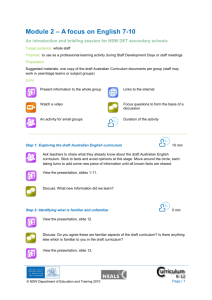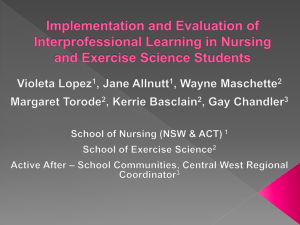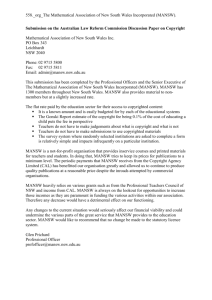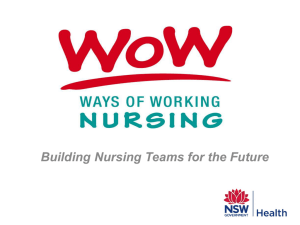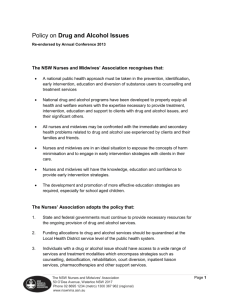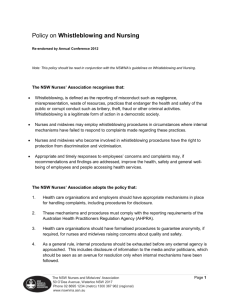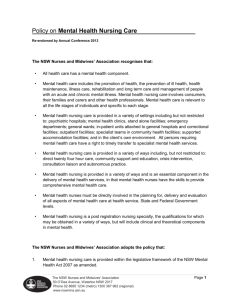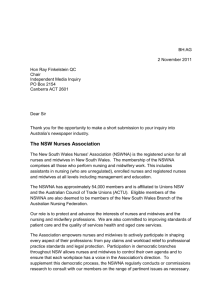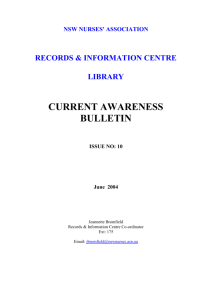Towards a Pricing Framework for hospitals discussion paper Feb 2012
advertisement
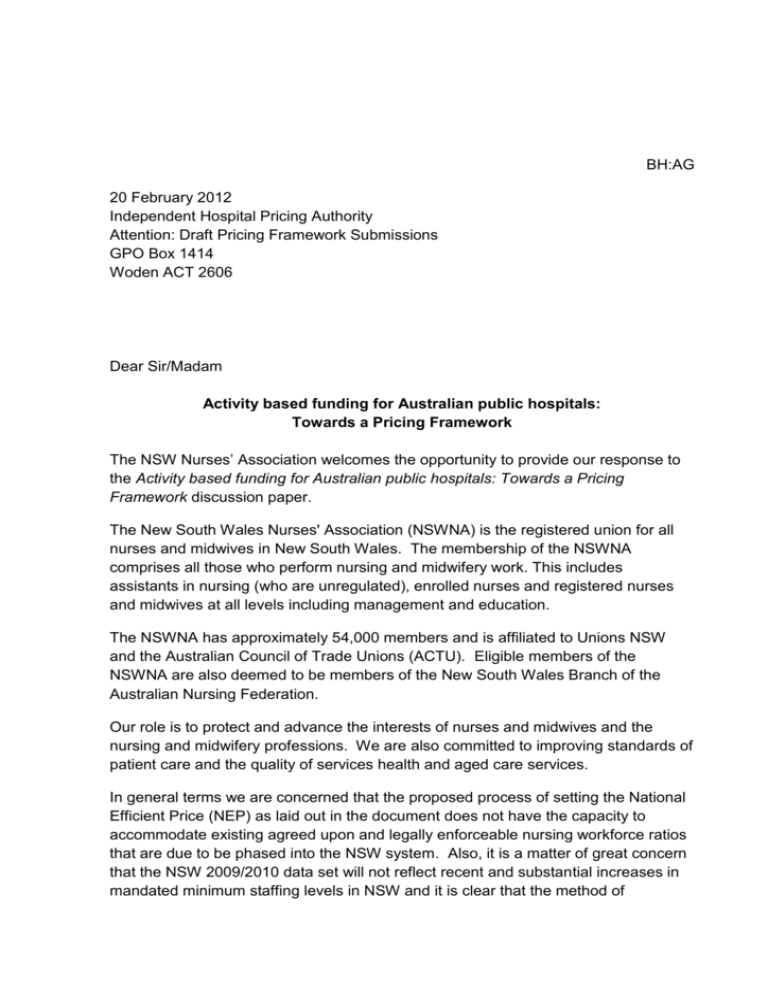
BH:AG 20 February 2012 Independent Hospital Pricing Authority Attention: Draft Pricing Framework Submissions GPO Box 1414 Woden ACT 2606 Dear Sir/Madam Activity based funding for Australian public hospitals: Towards a Pricing Framework The NSW Nurses’ Association welcomes the opportunity to provide our response to the Activity based funding for Australian public hospitals: Towards a Pricing Framework discussion paper. The New South Wales Nurses' Association (NSWNA) is the registered union for all nurses and midwives in New South Wales. The membership of the NSWNA comprises all those who perform nursing and midwifery work. This includes assistants in nursing (who are unregulated), enrolled nurses and registered nurses and midwives at all levels including management and education. The NSWNA has approximately 54,000 members and is affiliated to Unions NSW and the Australian Council of Trade Unions (ACTU). Eligible members of the NSWNA are also deemed to be members of the New South Wales Branch of the Australian Nursing Federation. Our role is to protect and advance the interests of nurses and midwives and the nursing and midwifery professions. We are also committed to improving standards of patient care and the quality of services health and aged care services. In general terms we are concerned that the proposed process of setting the National Efficient Price (NEP) as laid out in the document does not have the capacity to accommodate existing agreed upon and legally enforceable nursing workforce ratios that are due to be phased into the NSW system. Also, it is a matter of great concern that the NSW 2009/2010 data set will not reflect recent and substantial increases in mandated minimum staffing levels in NSW and it is clear that the method of indexation proposed will not adequately reflect recent and near future NSW public hospital costs. Section 4 Principles 4.3 System design principles ‘Patient-based: Adjustments to the standard price should be, as far a practicable, based on patient-related rather than provider –related characteristics.’ Page 25 of the document provides information about patient-based principle: “If an ABF system is fair and equitable, then where hospitals provide equivalent services, they should be paid the same. A corollary of this, expressed in the patient-based principle, is that payment should be as far as possible be based on characteristics of the patient or the service being provided rather than the setting in which the service is being provided”. In the explanation of the principle it would be useful to include examples of the inputs to patient-based care cost. There are legal agreements in place in each state and Territory that are enforceable to deliver prescribed levels of care from qualified staff. For example, minimum nursing hours per patient day are now incorporated in the various forms in most Industrial Awards and Agreements. This means that they are legally enforceable and are required to provide patient-based care. NSWNA believes that this is one of the components of a ‘characteristic of the service being provided’. Further, we believe that there must be a mechanism to allow future adjustments to the efficient price to reflect future enhancements to mandated staffing levels. For example, in NSW the phased introduction of nurse-patient ratios will require 1400 extra nurses in the public hospital system over the period 20?? – 2014. This is a significant workforce commitment in NSW which will not be captured by the NEP on 2009/10 public hospital cost data. Section 6 We agree that it is too early to adopt best practice pricing as the standard approach to activity based funding, particularly in light of the failure at this stage to identify and adopt a means to accommodate phasing arrangements (noted above) and anticipated developments around safer staffing levels that should be incorporated into best practice. Section 7 We support the introduction of some pay for performance incentives with the introduction of ABF. We support the general principle of the US approach discussed in the document however we believe that it is important that work in conjunction with the Australian Commission on Safety and Quality in Health Care occurs to ensure that this process is suited to the Australian context. If you require clarification of any of these points please contact Kate Adams, Manager Professional Services, 02 8595 2179. Yours sincerely BRETT HOLMES General Secretary
